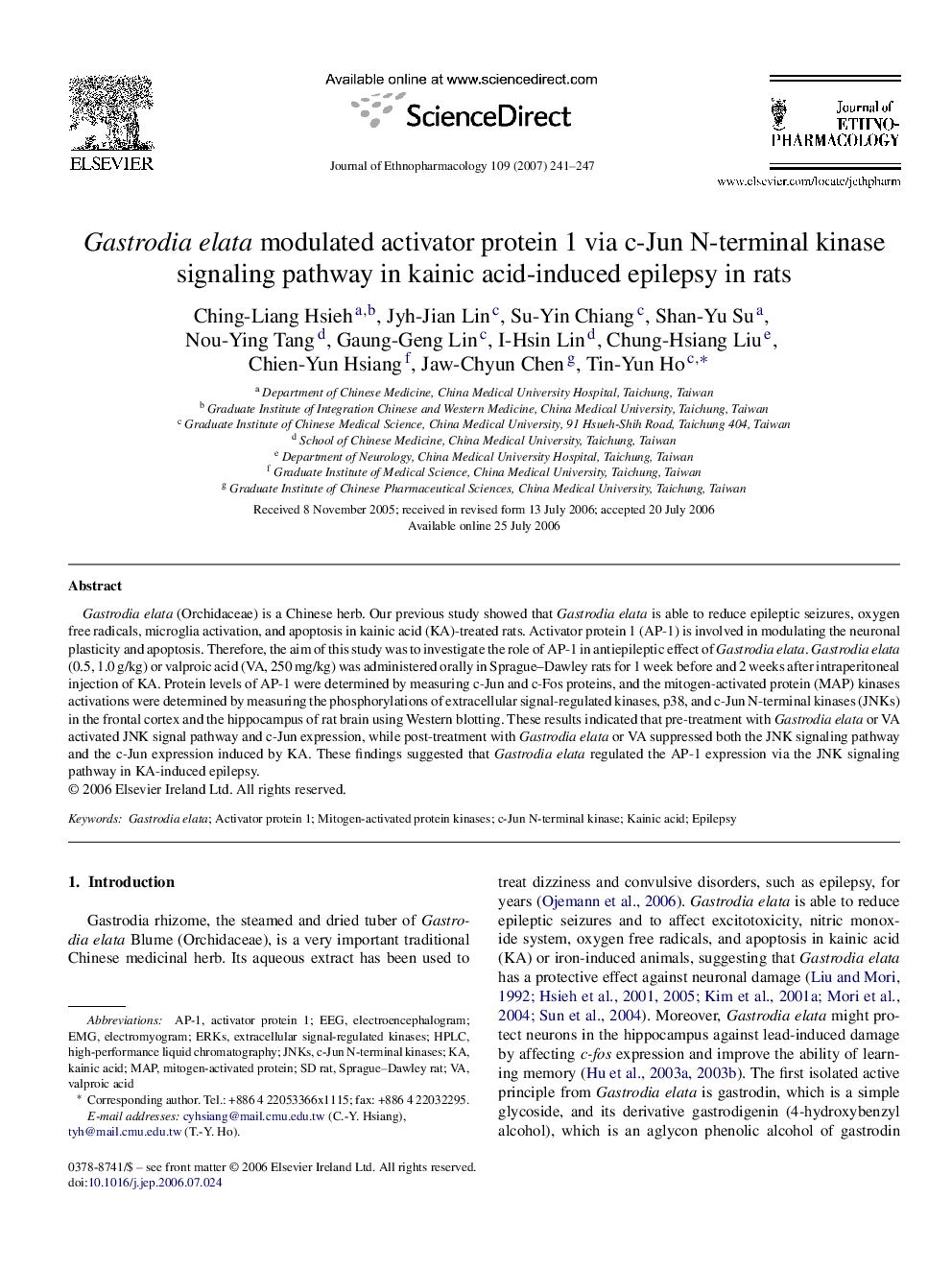| Article ID | Journal | Published Year | Pages | File Type |
|---|---|---|---|---|
| 2548447 | Journal of Ethnopharmacology | 2007 | 7 Pages |
Gastrodia elata (Orchidaceae) is a Chinese herb. Our previous study showed that Gastrodia elata is able to reduce epileptic seizures, oxygen free radicals, microglia activation, and apoptosis in kainic acid (KA)-treated rats. Activator protein 1 (AP-1) is involved in modulating the neuronal plasticity and apoptosis. Therefore, the aim of this study was to investigate the role of AP-1 in antiepileptic effect of Gastrodia elata. Gastrodia elata (0.5, 1.0 g/kg) or valproic acid (VA, 250 mg/kg) was administered orally in Sprague–Dawley rats for 1 week before and 2 weeks after intraperitoneal injection of KA. Protein levels of AP-1 were determined by measuring c-Jun and c-Fos proteins, and the mitogen-activated protein (MAP) kinases activations were determined by measuring the phosphorylations of extracellular signal-regulated kinases, p38, and c-Jun N-terminal kinases (JNKs) in the frontal cortex and the hippocampus of rat brain using Western blotting. These results indicated that pre-treatment with Gastrodia elata or VA activated JNK signal pathway and c-Jun expression, while post-treatment with Gastrodia elata or VA suppressed both the JNK signaling pathway and the c-Jun expression induced by KA. These findings suggested that Gastrodia elata regulated the AP-1 expression via the JNK signaling pathway in KA-induced epilepsy.
